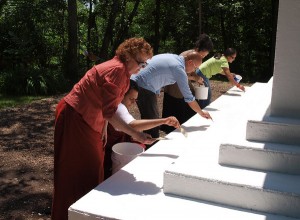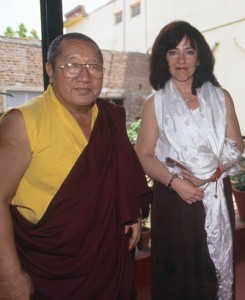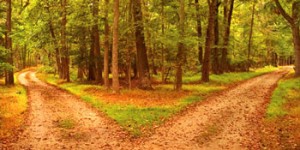The following is a slideshow of images of KPC Stupas. To learn more about these Sacred Structures join us at KPC Nov. 30 – Dec. 2 for a retreat weekend with Tulku Sang Ngag Rinpoche on the Power of Stupas:
KPC
What’s the Point?
Actually these teachings on the Four Noble Truths are the lessons that we are trying to implement here in this temple. One of the goals that I have personally invested a great deal in is to try to create in this temple an opportunity for sentient beings to invest their effort, their kindness, their resources in whatever way in order to bring benefit to others. I feel that this is a beneficial practice. According to the Buddha’s teachings, this is one way to create the perfect interdependent cause and effect arising in order to create the kind of happiness that we wish. The efforts that we engage in here don’t seem to bring much result at this time, in this way.
Right now, for instance, we are holding a twenty-four hour a day prayer vigil. There’s always someone in that room behind the staircase, the shrine room, who’s praying for the welfare of sentient beings. There are 12 two-hour shifts a day and we go round the clock twenty four hours a day. Now what is that producing for us now? Nothing, absolutely nothing. We lose sleep, we get irritable, we’re tired. Sometimes we don’t want to get up and do this thing. Sometimes we do everything that we can to trade shifts so that we don’t have to be there on Saturday morning. But somebody gets stuck with it, I guarantee you. Where’s the payoff? Why would we want to do that?
Let’s talk about some of the other things that we do. Right now we’re building a stupa park with eight stupas in it. In the past we’ve built the stupa that is out on the grounds toward the parking lot. When we built that stupa out there, we had weather such as we’ve had in the last couple of days. For some reason, every time we build stupas this happens. I don’t know why, but it seems to be in the high nineties, if not a hundred or over, with humidity just under pouring. You know somewhere around ninety-nine point nine. It’s just beastly weather and it’s very difficult. We get out there and we work very hard and we sweat very much. And it seems as though the effort will never end. It’s very, very hard because we do everything ourselves. Sometimes we lose weekends for a whole summer. Sometimes we lose evenings for months. We don’t get much rest; we work very, very hard.
Why do we do this? What’s the benefit? What are we experiencing right now in building this stupa park that’s so wonderful, besides backaches and sore limbs. It seems as though nothing. It seems as though we’re just working very hard for no good reason. But actually what we are doing here is we are implementing the Buddha’s teachings. The Buddha teaches us that whatever we can do to benefit beings, to bring happiness and well-being to sentient beings, will bring us happiness and well-being as well. The Buddha teaches us that the point of our practice, the point of our lives, is to actually engage in meritorious, generous, wholesome and virtuous activity that will be of benefit to sentient beings. And the Buddha teaches us specifically that the only lasting permanent true cessation of suffering, and therefore benefit to sentient beings, is enlightenment. The true cessation of suffering is the state of enlightenment.
Copyright © Jetsunma Ahkon Lhamo. All rights reserved
Ahkön Norbu Lhamo
The following is respectfully quoted from “Reborn in the West” by Vicki Mackenzie:
After Penor Rinpoche had left, the group dwelt on all that had happened and what he had said. Dutifully they began looking for a property, and sure enough, they found a beautiful place which would suit their purposes perfectly. It had white pillars all along the front. But the price was astronomical. Scraping together whatever money they could, and taking out a huge mortgage (which now necessitates many ingenious fund-raising schemes), they bought what is now KPC and established what over five years later has become the largest ordained Tibetan Buddhist community in the USA. Every Sunday over 120 people came here from the surrounding area to hear Jetsunma’s teachings.
At this stage Jetsunma still didn’t know precisely who she was. That was still to come.
A year after Penor Rinpoche’s visit Jetsunma felt the urge to see again the small, round man who had come into her life and touched her so deeply. She decided to go to India, to his monastery in Bylakuppe in Karnataka state. For the girl from Brooklyn who had never set foot outside the USA, landing in Bombay with its chaos, colour and poverty was merely a prelude for the greater revelation that was to follow.
Facing Penor Rinpoche on his own territory, she said she wanted to take the bodhisattva vows. This is the ceremony in which you formally promise to dedicate your life to the well-being of others. She asked if he would give her a spiritual name, as was the custom at such an occasion.
‘When the time is right,’ replied Penor Rinpoche.
‘When will the time be right?’ pushed Jetsunma, with typical Western impatience.
‘I’ll give it to you when the right day comes,’ continued Penor Rinpoche.
‘When is the right day going to come?’ persisted Jetsunma, not giving up.
‘When I say so,’ retorted Penor Rinpoche firmly.
Jetsunma gave up.
One day, when the moon was in a particular place in the heavens, Penor Rinpoche called her to him and announced: ‘Now I am ready to give you your name.’
He then wrote out her spiritual name on a piece of paper, rolled it up into a scroll, put his personal seal on it, then handed it to her with the white katag (scarf) of respect wrapped around it. ‘That’s your name–Ahkön Norbu Lhamo,’ he said.
There was no apocalyptic vision, not instant flashback to another time, another place, another body. There wasn’t even shock or surprise. Just a sense of intense familiarity.
‘I experienced serious dejà vu,’ was how Jetsunma recalls the occasion. ‘I felt a strong connection to that name. I asked him to say it again. It was like milk to my ears.’
Through his translator he then uttered the monumental words: ‘I now recognize you as the sister of Kunzang Sherab. Her name was Ahkön Lhamo. In that life she and Kunzang Sherab co-founded the Palyul tradition. I recognize you as her incarnation.’
And in those few simple sentences Penor Rinpoche made sense of the extraordinary life that Jetsunma had teched out for herself and the otherwise inexplicable abilities she possessed. This, at last, was the official explanation of how a woman with no Buddhist training whatsoever, no books on Tibetan Buddhism, no teacher, no outward example to follow, had been driven to enter years of strict meditation by herself and to emerge with not only profound wisdom but also the wish and the ability to help others fulfill their spiritual potential.
Nothing Will Stop Us: Love Is Stronger Than Prophecy
This is the final excerpt from a teaching on Compassion by Jetsunma Ahkon Lhamo.
I have listened to some of the teachings on Buddhist cosmology, and heard the prophecy that there will be a time when there is no Buddha in this world – no teaching, no help, and no light. When things will be so dark there will be nothing, no hope. As a Buddhist I am supposed to believe this teaching, and I try. But I refuse to accept it, I won’t accept it, and if that makes me a bad Buddhist, then I am. But rather than think in a prideful way that I refuse to accept this teaching, I hope instead to cultivate an endless amount of energy to continue to practice for the benefit of others, no matter what the odds are. To consider that it is worthwhile if even one person can be benefited.
I wish we would all think in this way – that nothing will stop us. I find it necessary to believe that compassion is the strongest power anywhere, that love is stronger than prophecy. Believing this, we must continue as we are. Every day we must be stronger and continue in a more determined way.
When I see those of you who have taken ordination, I think you are the hope of the world. If you can remain emanating in the world always, even after attaining supreme realization, if your love is that strong that you change the prophecies, we have hope.
I also think of those who are newly starting, and those of you who are intermediate, and those of you who are choosing whatever particular path you choose. If you use the Buddha’s understanding, and come to a point of profound commitment and practice – if you consider love is your life, so that it will increase throughout every future incarnation – then you, too, are the hope of the world.
We must take this vocation very seriously. I don’t mean we have to walk around like somber people, with a terrible, woeful expression on our faces, or that we never get to have any fun anymore. It’s not like that. But our sense of joy is the kind of joy that is born of the mind of compassion, the kind of joy that appears in the mind with the commitment to benefit beings at any cost, the kind of joy that knows there is an antidote to suffering. That kind of joy is stronger than human joy and human sadness, because those things come and go, day to day, up and down, in and out.
I suggest you choose to live a lasting life of love, rather than one that is impermanent and superficial. In doing so, come to know something that doesn’t vary. Know something that grows from a tiny seed into a profound sense of bliss, which, as it grows, produces the kind of realization that can let you at last be someone who can truly help sentient beings with the right medicine.
You are at a crossroads in time now. Tremendous opportunities are coming your way. They have come your way. You are at a point very rare in cyclic existence. It is now possible for you to make this choice. It was not possible before. You should take this time very seriously, and consider deeply whether you will cultivate the mind of compassion every moment from now on for the rest of your life, and in all future lives to come, knowing that this is the only end to suffering.
Copyright © Jetsunma Ahkon Lhamo. All rights reserved
KPC Participates in “Clergy Without Borders”
The “Clergy Without Borders” bus rolled up to the Unitarian Universality Church in Rockville at 4:20pm on Sunday – just about on schedule – for a rally in Montgomery County. Clergy Without Borders” is an interfaith effort that acknowledges diversity and seeks to raise consciousness of peace and unity in Maryland. A bus of 12 clergy drawn from Christian, Jewish, and Muslim traditions traveled over a 4 day period to a dozen communities in Eastern, Central and Western Maryland. The rally in Rockville featured remarks from County Executive Ike Leggett and included musical offerings from Sikh, Jewish and Unitarian musicians, statements from clergy on the bus of personal commitment to creating a safe environment for all spiritual traditions, and a rousing call to action by one Imam who asked that everyone, when they look in the mirror, to recognize the face of other spiritual traditions. Montgomery County interfaith groups also gave a short description of their work in County.
KPC friend Rev. Mansfield “Kasey” Kaseman spent three days on the bus with the Clergy Without Borders and was the emcee for the Rockville rally. He introduced County Executive Ike Leggett who reaffirmed his and the County’s commitment to a diverse and peaceful Montgomery County. The Clergy Without Borders group departed for Baltimore, their last stop, at 6pm. Four sangha from KPC attended this event – Gonpo Yeshe (David) Williams, Tashi Dawa (William) North, Ani Alyce Louise Bertsche, and Ani Tenzin (Lynn).
HH Karma Kuchen at KPC 2009: Stabilizing the Dharma in the West – Video
The following is a video excerpt from a teaching offered by His Holiness Karma Kuchen Rinpoche, 12th Throneholder of the Palyul Lineage, at Kunzang Palyul Choling in Maryland:
His Holiness will be visiting KPC once again on August 4th to confer special Long Life Empowerments of Amitabha and Amitayus. For more details or to register for the event visit: http://www.tara.org/program/his-holiness-karma-kuchen-rinpoche-to-offer-empowerment-ceremony/
Help Save This Sacred Space: YouTube Video Khenpo Tenzin Norgay
The following is a YouTube video extracted from a teaching given by Khenpo Tenzin Norgay today at Kunzang Palyul Choling:
See KPC’s website for more information and how you can HELP!
Dharma in Degenerate Times: YouTube Video by Khenpo Tenzin Norgay
The following YouTube teaching was recorded live at Kunzang Palyul Choling in Maryland:
Ven. Dzigar Kongtrul Rinpoche Arrives at KPC
The following is a video of comments made by Ven. Dzigar Kongtrul Rinpoche during his visit to Kunzang Palyul Choling. You can tune into a live webcast of his teaching this evening here:



![Attendee Group Picture[1]](https://www.tibetanbuddhistaltar.org/wp-content/uploads/2013/11/Attendee-Group-Picture1-300x132.jpeg)